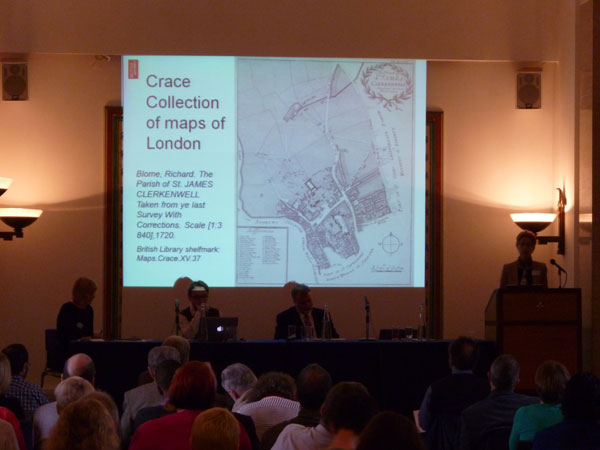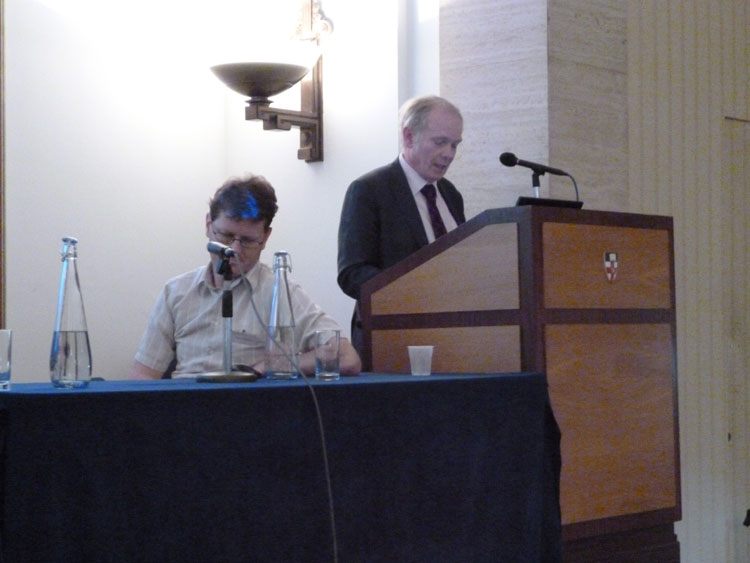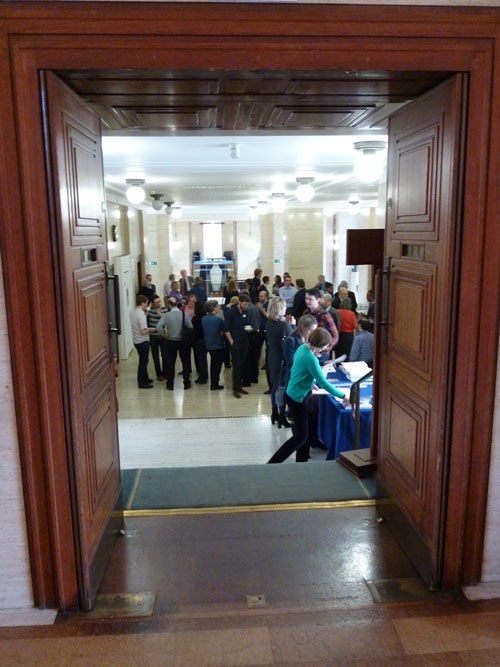My first post is very timely – the day after this year’s hugely successful Gerald Aylmer seminar.
Everything is associated with a place: people, events, objects, even emotions, so this year we settled on the theme of ‘Locating the Past’. Speakers were asked to consider the changing interface between history and geography and how their field of expertise is being transformed by new approaches and technologies. We heard about everything from the mapping of teddy bears to the mapping of rural land in the South Downs, all in all, a very wide ranging subject.
After a welcome from Colin Jones, President of the Royal Historical Society, and a useful introduction to set the scene and context for the day from Humphrey Southall (Portsmouth University), we moved on to three lively and thought provoking panel sessions.

For me, highlights of the panel sessions included presentations on overlaying Tudor paintings on modern day landscapes, archiving everyday possessions and giving each one a website(!), mapping emotions prompted by the scenes in the Lake District, the relationship between a place and a surname and, finally, an important discussion about getting the public involved in locating the past.

David Thomas, Director of Technology at The National Archives, also talked about some of our new technologies and approaches to georeferencing and showed everyone a great visual representation of the dissolution of the monasteries on a Google Earth map.
The day was rounded off perfectly with a fascinating lecture from Tim Hitchcock (University of Hertfordshire) who talked about the ‘bonfire of the disciplines’ when referring to the breaking down of the barriers between history and geography and ‘the mash up of text and space’. I was particularly taken with Tim’s reference to Charles MacKay (or McGee), a crossing sweeper in London who frequented the same spot in Fleet Street every day for more than 30 years prompting Tim to wonder if ‘some people have a greater right to appear on a map than many buildings’.
The presentations prompted many interesting questions and musings and there was an unmistakeable enthusiasm in the room for the subject. We were pleased that one hundred people (full capacity) signed up for the event and doubly pleased that many more people chose to follow the proceedings on Twitter. This annual seminar is really going from strength to strength, next year we’re going to have to find a bigger room…
The Gerald Aylmer seminar is an annual event co-hosted by The National Archives, the Royal Historical Society and the Institute of Historical Research. The seminar is in memory of the late Gerald Aylmer, past President of the Society and Chairman of the Historical Manuscripts Commission. The event aims to address subjects of joint interest to historians and archivists. We’re already thinking about next year’s theme, themes from previous years have included: the Digital Revolution, Crowdsourcing, Hidden Histories and, last year’s theme, the understanding and use of medieval and early modern archives. Any ideas for the 2013 seminar would be most welcome!

It was a very stimulating event and the presentations were fascinating.
My personal favourite was the project pulling together data from the National Farm Survey and other sources to build up a better picture of rural Sussex in the 1940s. Just one example of a perfect marriage of maps and text?
I found the day enormously stimulating – particularly how historians might use mapping techniques, for example illustrating changes over decades.
I was on a fairly steep learning curve during the day, and on occasions pondered ‘so what?’ about mapping certain kinds of data – but it was all well worth it.
So thank you.